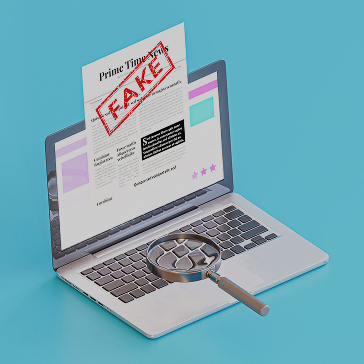Understanding Internet Defamation & How to Protect Your Reputation
Introduction
In today’s digital world, a single negative article, misleading review, or defamatory social media post can destroy personal and business reputations overnight. False information spreads rapidly, causing financial, professional, and emotional damage.
Whether it’s a scam report, slanderous blog, negative press article, or competitor-driven attack, the consequences of online defamation are severe. While legal options exist, many people struggle to get defamatory content removed or suppressed effectively.
Here we are exploring the various forms of internet defamation, the legal landscape, and the best strategies to remove, suppress, and manage harmful content online.

reach out to us.
Our qualified team of professionals can help you assess and solve all internet defamation matters for you or your business.
What is Internet Defamation?
Internet defamation occurs when false or misleading information is published online, harming an individual’s or a company’s reputation. This can take many forms, including:
- Libel (written false statements, like blogs, articles, and reviews).
- Slander (spoken false statements, including videos and podcasts).
- Misinformation and false accusations that impact careers, businesses, and personal lives.
Victims of online defamation face long-term consequences, including loss of job opportunities, damaged business credibility, and even personal threats. While legal action is one solution, it can be expensive and time-consuming. Instead, a combination of legal strategies, online reputation management (ORM), and digital PR offers the most effective approach.

Types of Internet Defamation & Reputation Attacks
Competitor Attacks & Business Defamation
Some companies use negative SEO tactics, fake reviews, and anonymous defamation to harm competitors. This can result in:
- Fake complaints on Glassdoor, Google Reviews, and Trustpilot.
- False claims about fraud, scams, or unethical practices.
- Social media smear campaigns on Twitter, LinkedIn, or Reddit.
Solution: Proactive ORM strategies help bury false information, remove defamatory content, and improve search rankings.
Negative Reviews on Consumer Websites
Many businesses struggle with fake or exaggerated customer complaints on platforms like:
- Ripoff Report (non-removable complaints).
- Better Business Bureau (BBB) (business rating impact).
- Google My Business & Yelp (SEO and local search ranking damage).
Solution: Legal takedown requests, review suppression strategies , and positive content creation can mitigate damage.
Court Case Filings & Legal Document Exposure
Even old legal issues, dismissed cases, or lawsuits can appear on Google indefinitely, harming reputations. Common sources include:
- Pacer.gov & Justia (court record archives).
- Background check sites (TruthFinder, MyLife, BeenVerified).
- Public case reporting platforms.
Solution: Legal de-indexing requests, privacy law applications, and suppression tactics.
Defamatory Blog Posts & Hate Websites
Some bloggers and activists use personal blogs or hate forums to spread misinformation, accusations, or private data (doxxing).
- Common platforms for defamatory blogs:
- WordPress & Blogger (independent blog sites).
- Medium & Substack (viral content exposure).
- ComplaintsBoard & TheDirty (anonymous attack sites).
Solution: Content takedown requests, SEO suppression, and crisis PR.
Embarrassing Images, Videos & Social Media Attacks
Private photos, videos, and false accusations can go viral, leading to permanent reputation damage. Common threats include:
- Exposed videos or revenge content.
- Fake social media accounts impersonating individuals.
- Memes or edited content used maliciously.
Solution: DMCA takedowns, AI-powered image suppression, and legal intervention.
Negative News, Scam Reports & Editorials
Old or misleading news articles can continue ranking on Google’s first page, even if they are inaccurate.
- Forbes, Bloomberg, Business Insider – High-authority media that rarely removes articles.
- Scam-reporting sites (ScamPulse, ComplaintsBoard, PissedConsumer).
- Press coverage on past legal disputes or controversies.
Solution: Online PR campaigns, content replacement, and legal content removal strategies.
Slanderous Lies & Social Media Defamation
False allegations often spread on:
- Twitter & Reddit (anonymous accusations).
- Facebook groups & TikTok (viral misinformation).
- YouTube & Instagram (influencers spreading defamation).
Solution: Legal notices, platform policy-based takedown requests, and social media monitoring.
What are the Legal Aspects of
Internet Defamation?
Understanding the legal side of internet defamation is crucial for anyone dealing with false and damaging online content. Defamation laws vary by country, but they generally protect individuals and businesses from false statements that cause harm.
What Qualifies as Defamation?
To be legally considered defamation, content must meet these key criteria:
- False Statement – The information must be untrue.
- Published Online – It must be publicly accessible (blog, social media, news, etc.).
- Harmful Impact – The false claim must damage reputation, career, or finances.
- Negligence or Malicious Intent – The publisher must have acted irresponsibly or with intent to harm.
Example: A fake negative review accusing a business of fraud could be defamation if it leads to financial loss.
Can You Sue for Online Defamation?
Yes, but legal action depends on factors like:
- Defamation laws in your country (U.S. laws differ from U.K. or India).
- The identity of the person posting the content (anonymous defamation is harder to address).
- Platform policies (social media sites have different content removal rules).
Key Fact: In the U.S., public figures must prove “actual malice” (intentional harm), while private individuals only need to show negligence. In complex cases, expert witnesses can provide digital forensics analysis, assess reputational harm, and support legal claims with specialized insights, strengthening your case.
Legal Alternatives to Filing a Lawsuit
If suing is not an option, you can use:
- Cease & Desist Letters – A formal request for the author to remove defamatory content.
- DMCA Takedown Requests – If content includes copyrighted material, it may be legally removed.
- Privacy Law Requests – Some countries allow content removal under “Right to be Forgotten” laws.
Google De-Indexing: In some cases, search engines may remove harmful content from search results, even if the website refuses to delete it.
How Platforms Handle Defamation Claims
Most online platforms have strict content removal policies:
- Google & Search Engines – Rarely remove content unless legally forced.
- Social Media Sites – Can remove posts that violate community guidelines.
- Review Websites – Usually do not remove negative reviews unless proven false.
Pro Tip: Legal strategies combined with reputation management tactics (such as content suppression) offer the best results.
Consequences of Internet Defamation & How
Our Approach is Superior
The Impact of Online Defamation
Internet defamation can have severe and lasting consequences, affecting both individuals and businesses. A single false claim, negative article, or defamatory post can lead to:
Reputational Damage: Trust is hard to rebuild once credibility is questioned.
Financial Loss: Negative content can drive away clients, investors, and job opportunities.
Legal Complications: Dealing with defamation lawsuits is time-consuming and costly.
Emotional & Mental Stress: Continuous online harassment can take a toll on well-being.
Permanent Digital Footprint: Even after being proven false, defamatory content may continue to appear in search results.
Example: A defamatory blog post accusing a professional of unethical practices can not only tarnish their reputation but also make it difficult for them to secure future work.
How Our Approach Helps Balance the Consequences
Internet defamation can have severe repercussions—damaging personal and professional reputations, causing financial losses, and leading to emotional distress. Our approach not only addresses these consequences but also helps mitigate their impact through a proactive, multi-layered strategy:
| Aspect | Traditional Methods | Additional Aspects in our Approach | How It Balances Consequences |
|---|---|---|---|
| Content Suppression |
Traditional Methods
Reactive takedown requests, legal notices, and cease-and-desist letters under Section 230 of the Communications Decency Act (CDA) (U.S.).
|
Additional Aspects in our Approach
Strategic Digital Asset Optimization – We use entity-based SEO, authoritative domains, and structured data to suppress defamatory content and reinforce credibility.
|
How It Balances Consequences
Ensures long-term mitigation by influencing search algorithms to prioritize positive, verified content over defamatory material.
|
| Content Removal |
Traditional Methods
Legal frameworks like DMCA (U.S.) allow for content removal through platform compliance. These efforts are effective but can be time-consuming.
|
Additional Aspects in our Approach
Forensic Link Devaluation – We strategically weaken defamatory URLs through backlink erosion, structured internal linking, and search engine reevaluation triggers.
|
How It Balances Consequences
Reduces harmful content visibility efficiently, avoiding prolonged legal battles or uncertain removal processes.
|
| Reputation Restoration |
Traditional Methods
PR campaigns, legal recourse under Restatement (Second) of Torts § 558 (U.S.), and controlled messaging help rebuild reputations. However, maintaining long-term credibility requires proactive digital reinforcement.
|
Additional Aspects in our Approach
Sentiment Reconstruction Framework – We use controlled narrative sculpting, digital press syndication, and trust signal infusion to shift online perception.
|
How It Balances Consequences
Ensures a proactive approach to rebuilding reputation rather than just suppressing negative content.
|
| Legal Strategy |
Traditional Methods
Defamation lawsuits on strong legal grounds like, landmark cases such as New York Times Co. v. Sullivan (1964), which set the standard for public figures proving actual malice. Outcomes may vary based on jurisdiction, platform policies, and the anonymity of the source.
|
Additional Aspects in our Approach
Targeted Compliance Negotiation – We engage directly with hosting providers, domain registrars, and content platforms under policies like Google’s Right to be Forgotten (EU GDPR, Article 17).
|
How It Balances Consequences
Maximizes removal success through non-litigious channels, reducing legal costs and delays.
|
| Search Engine Manipulation |
Traditional Methods
SEO strategies focus on promoting positive content and improving brand authority. This helps in ranking favorable content but requires continuous optimization.
|
Additional Aspects in our Approach
SERP Firewall Engineering – We construct algorithmic barriers using multi-layered content diversification to insulate rankings.
|
How It Balances Consequences
Establishes a long-term digital shield, preventing future defamation from gaining search visibility.
|
| Psychological Impact Mitigation |
Traditional Methods
Brand reputation consulting and online crisis management support provide guidance on handling public perception and media scrutiny.
|
Additional Aspects in our Approach
Digital Confidence Rebuilding – We provide strategic online engagement methods, social proof reinforcement, and controlled visibility expansion.
|
How It Balances Consequences
Helps individuals and businesses regain control over their digital identity, reducing emotional and reputational stress.
|
reputation.
At Blue Ocean Global Technology, we are experienced in creating a management
plan to rebuild your reputation.
Steps to Take if You Are a Victim of
Online Defamation
Being targeted by online defamation can have lasting consequences on both personal and professional reputations. If you find yourself facing defamatory content, follow these steps to regain control of your digital presence:
Identify the Source
Determine who published the content and where it appears in search rankings. Understanding the source helps in deciding the best course of action.
Document Evidence
Capture screenshots, save URLs, and record timestamps. This ensures you have verifiable proof if legal or platform-based removal actions are required.
Request Removal
Many platforms have policies against defamatory content. Submitting a formal request citing privacy laws, terms of service violations, or defamation statutes can sometimes lead to removal.
Seek Legal Action
If removal requests fail, consider sending a cease & desist letter, filing a DMCA takedown, or pursuing legal action under defamation laws applicable to your jurisdiction.
Use Reputation Management
Even if content remains online, its impact can be mitigated. Advanced reputation management strategies, such as content suppression, SEO-driven visibility control, and authoritative content reinforcement, help restore and protect your digital identity.
Conclusion
Defamation on the internet can have serious consequences, impacting your reputation, credibility, and business opportunities. Whether it’s online libel, social media slander, or defamatory content in the media, taking the right steps is crucial. Legal action alone often isn’t enough—effective reputation management is key to restoring your image.
At Blue Ocean Global Technology, we specialize in tackling defamation online through advanced content suppression, strategic SEO, and digital risk management. Our approach not only helps remove defamatory content but also ensures long-term protection from future attacks.
Don’t let internet defamation define your name. Act now to restore and safeguard your online presence.

FAQs
Internet Defamation
- What qualifies as internet defamation?
Internet defamation occurs when false information is published online that harms an individual’s or business’s reputation. This includes libel (written content) and slander (spoken content), as well as misinformation on websites, blogs, and social media platforms.
- Can I sue for defamation if the content is anonymous?
Yes, though it may be more challenging. In cases of anonymous defamation, you may need to pursue a “John Doe” lawsuit to unmask the individual behind the defamatory content. Legal remedies, such as subpoenas, can help identify the person responsible.
- How long does it take to remove defamatory content from the internet?
The time it takes to remove defamatory content varies depending on the platform and legal approach. While DMCA takedowns or direct legal action can expedite removal, suppression strategies may be required for content that remains visible due to search engine indexing.
- Are there legal alternatives to suing for defamation?
Yes, if suing is not feasible, you can send a cease and desist letter, file DMCA takedown requests, or use privacy law requests (such as the Right to be Forgotten in the EU). These methods can often lead to content removal without the need for a formal lawsuit.
- How can online reputation management (ORM) help with defamation?
ORM strategies can help suppress defamatory content by improving search rankings with positive content, conducting content removal, and reinforcing your digital reputation through SEO-driven tactics. These methods are effective for long-term protection.









